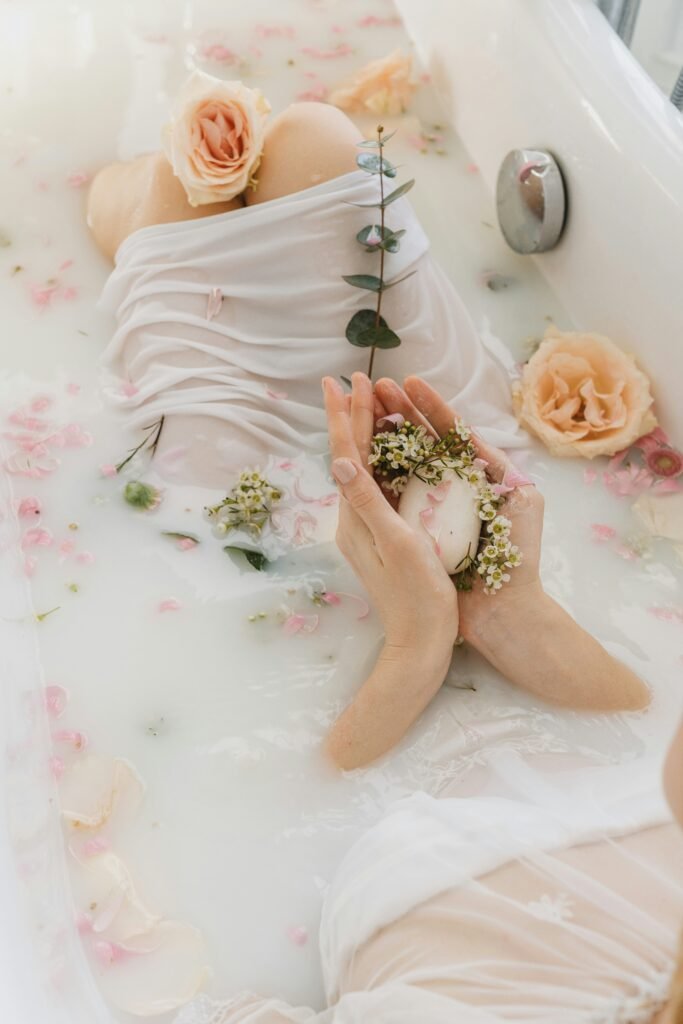The Self-Care Habits I Never Skip Anymore
How I Finally Learned to Slow Down
I’ll never forget the Tuesday morning when everything came crashing down. It wasn’t a dramatic moment—just me, sitting at my kitchen table before sunrise, clutching a coffee cup with shaky hands. I hadn’t slept more than a few hours a night in weeks. My head was pounding, my inbox was overflowing, and suddenly, I just knew: something had to give.
Up until then, I’d treated self-care like a luxury, something other people did when they had spare time. I thought pushing harder, sleeping less, and doing more somehow made me stronger, more worthy, more successful. In reality, it was the opposite. My body was screaming at me, my relationships were suffering, and I was running on empty.
That day marked a turning point. I finally realized that self-care wasn’t indulgent—it was necessary. Since then, I’ve built a handful of habits that I refuse to skip. They’re not extravagant spa treatments or expensive rituals. They’re simple, doable, and woven into my everyday life. And honestly? They’ve completely changed how I feel, how I work, and how I show up for the people I love.

From Burnout to Balance
For years, I ignored every signal my body gave me. I told myself I didn’t have time for rest or relaxation. Work came first. People came first. I came last. But eventually, my body forced me to pay attention.
Recovery didn’t happen overnight. It started with tiny steps—a five-minute meditation, a short walk after lunch, drinking more water. At first, these things felt almost too small to matter. But slowly, they added up. I slept better. I had more energy. My constant headaches eased. I started feeling like myself again.
What surprised me most was that taking care of myself didn’t make me less productive. It made me more productive. By resting and recharging, I got things done faster, with more creativity and less stress. That lesson alone was worth everything.
A Partner in Self-Care
At first, my partner didn’t quite get it. He teased me for journaling in the mornings or meditating when I could “be getting work done.” But over time, he couldn’t ignore the change in me. I was calmer, happier, and more present with him.
One morning, he sat down at the table while I was journaling. “You seem different,” he said. “More like yourself.” That opened a conversation we didn’t even realize we needed. My constant burnout had been hurting not just me, but us.
Little by little, he started joining me—on morning walks, in putting phones away before bed, in cooking simple, nourishing meals on Sundays. What started as my personal survival strategy became something that strengthened our relationship.
Why These Habits Work
The things I do aren’t complicated. They’re the basics: rest, hydration, movement, mindfulness, boundaries. But the key is consistency. Instead of seeing self-care as optional, I treat it as essential—just as important as answering emails or making dinner.
Each habit does more than one thing. Meditation isn’t only about mindfulness; it creates space before the chaos of the day begins. Movement isn’t only for fitness; it clears my head and lifts my mood. Even simple things, like keeping my phone out of the bedroom, protect my sleep and my peace of mind.
These habits stick because they’re realistic. No expensive memberships, no complicated routines. Just small, steady practices that anyone can adapt to their own life.
My Non-Negotiables
Here are the things I never skip anymore:
- Journaling – even if it’s just a few lines, it helps me clear my head.
- Morning movement – a walk, stretching, or yoga, whatever I can fit in.
- Hydration – I drink a big glass of water before coffee. Always.
- Boundaries with screens – no phones in the bedroom, no endless scrolling at night.
- Meal prep – simple, nourishing food ready for busy days.
- Consistent sleep – same bedtime, same wake-up whenever possible.
- Digital cut-offs – I decide when I’ll check email, not the other way around.
They might sound basic, but they’ve become the backbone of my well-being.
How to Build Lasting Habits
The truth? It’s not about willpower. It’s about strategy. When I tried to overhaul everything at once, I failed every time. What finally worked was starting small.
I began with just one non-negotiable: five minutes of meditation in the morning. Once that felt natural, I added another—drinking water before coffee. Slowly, one habit stacked on top of the other until I had a full routine without feeling overwhelmed.
The trick is to connect new habits to existing ones. Journal after brushing your teeth. Stretch while the coffee brews. Take a walk right after lunch. These “attachment points” make it easier for the new behavior to stick.
And here’s the most important thing: be kind to yourself. If you miss a day, it’s not failure—it’s just life. Start again tomorrow. That ability to restart, without guilt, is itself a form of self-care.
Mindset Shifts That Help
- See self-care as essential, not optional. Your health fuels everything else.
- Get accountability. A friend, a partner, even an app—something to keep you honest.
- Simplify. You don’t need 20 habits. Pick the ones that matter most to you.
- Adapt. If meditation feels hard, try walking meditation. If workouts feel impossible, try short bursts throughout the day.
Affordable, Accessible Self-Care
The wellness industry loves to make self-care look expensive and complicated, but it doesn’t have to be. Some of my favorite rituals cost nothing:
- A honey mask from the pantry.
- A long walk in fresh air.
- Breathing deeply during my commute.
- Listening to music without distractions.
- Saying “no” when my plate is full.
True self-care isn’t about products or perfection—it’s about listening to your body and giving it what it needs.
Final Thoughts
Looking back, I wish I hadn’t waited until I was completely burned out to take self-care seriously. But I’m grateful for the lessons that season taught me. The habits I once brushed off as optional are now the foundation of my health, happiness, and productivity.
If you’re feeling like you’re running on fumes, take this as your reminder: you don’t have to wait for a breaking point. Start small. Pick one thing—drink more water, go for a walk, put your phone down before bed. Build from there.
Self-care isn’t selfish. It’s the thing that allows you to show up fully—for yourself, your family, your work, your dreams. And once you experience the difference, you’ll never want to skip it again.

Frequently Asked Questions About Self-Care Habits
1. How long does it take to form a new self-care habit?
Research suggests it takes anywhere from 18 to 254 days for a habit to become automatic, with an average of 66 days. Start small and focus on consistency rather than perfection.
2. What if I don’t have time for self-care?
Start with “micro-practices” that take less than five minutes. Even brief moments of intentional self-care accumulate to create significant benefits over time.
3. Is self-care the same as self-indulgence?
No. True self-care addresses fundamental needs and supports long-term wellbeing, while self-indulgence often provides temporary pleasure but may not support overall health.
4. What’s the most important self-care habit to start with?
Sleep is the foundation of all other self-care. Prioritizing consistent, quality sleep will give you the energy for other beneficial habits.
5. How do I practice self-care on a tight budget?
Many powerful self-care practices are completely free: meditation, walking outdoors, journaling, breath work, and setting boundaries all cost nothing.
6. Can self-care help with anxiety and depression?
While self-care habits can be powerful supports for mental health, they complement rather than replace professional treatment for clinical anxiety and depression.
7. How do I make time for self-care with young children?
Integrate self-care into activities you already do with your children, such as outdoor play or cooking nutritious meals. Also, prioritize “naptime self-care”—short practices during children’s rest periods.
8. What if my partner or family doesn’t support my self-care?
Start with clear communication about how self-care benefits not just you but everyone around you. Begin with practices that don’t disrupt family routines, and gradually demonstrate the positive changes.
9. Is exercise considered self-care?
Absolutely. Movement is a fundamental form of self-care that benefits physical, mental, and emotional wellbeing.
10. How do I know which self-care practices are right for me?
Pay attention to how different activities make you feel. The right self-care practices leave you feeling genuinely replenished, not depleted or guilty.
11. What’s the difference between self-care and healthcare?
Healthcare typically addresses specific medical concerns, while self-care encompasses daily habits that support overall wellbeing and prevent future problems.
12. How do I maintain self-care habits during especially busy periods?
During high-stress times, focus on maintaining fewer but more impactful habits rather than abandoning self-care altogether. Even five minutes of targeted self-care is better than none.

